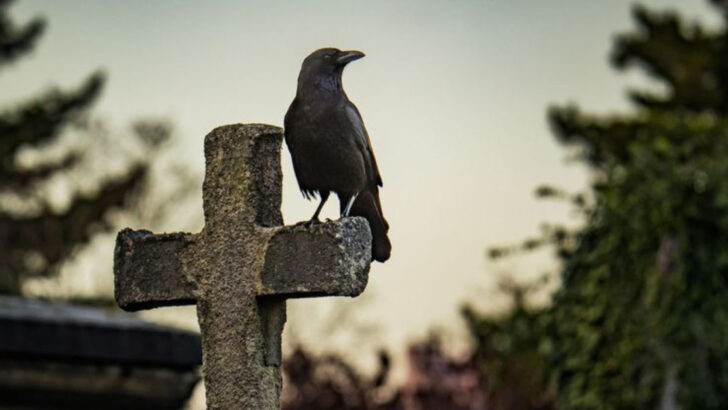Crows, with their ebony feathers and sharp intellect, have long captured the human imagination.
Revered in mythology and observed with fascination in contemporary science, these birds exhibit a blend of mystique and practicality.
Yet, for all their allure, they possess traits that make them unsuitable as household companions.
This blog explores six intriguing aspects of crows that enhance their enigmatic reputation, coupled with five compelling reasons why they might not be the best choice for a pet.
Crows as Mythical Symbols
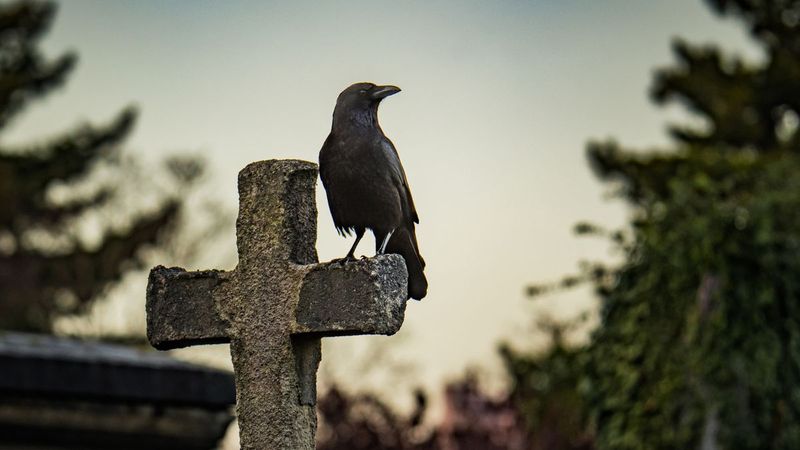
In various cultures, crows are seen as mystical creatures. They are often considered omens or messengers. Their black feathers, coupled with sharp, intelligent eyes, lend them an air of mystery.
In Norse mythology, Odin, the Allfather, had two crows, Huginn and Muninn, representing thought and memory. This association has persisted through ages, embedding crows in the realm of legends.
Despite their eerie reputation, they are respected for their intelligence and adaptability. This mythical aura continues to intrigue and inspire stories worldwide, making them timeless symbols of the unknown.
Crows’ Remarkable Intelligence
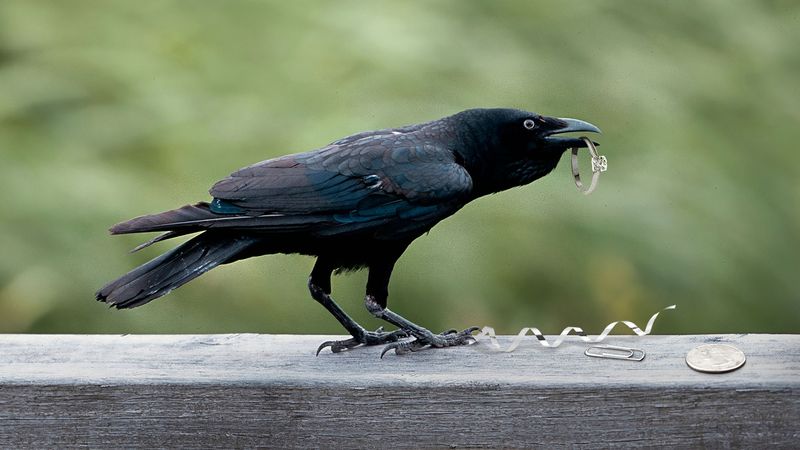
Crows are among the smartest birds, often compared to great apes in cognitive abilities. They use tools, understand causality, and can recognize faces.
One experiment showed crows crafting hooks from wires to retrieve food. Their problem-solving skills rival those of young children, illustrating a sophisticated level of intelligence. Such mental acuity allows them to adapt to urban environments, thriving amidst human civilization.
This intelligence is a double-edged sword, as it can lead to mischief and complex social interactions within their communities.
Crows’ Complex Social Structures
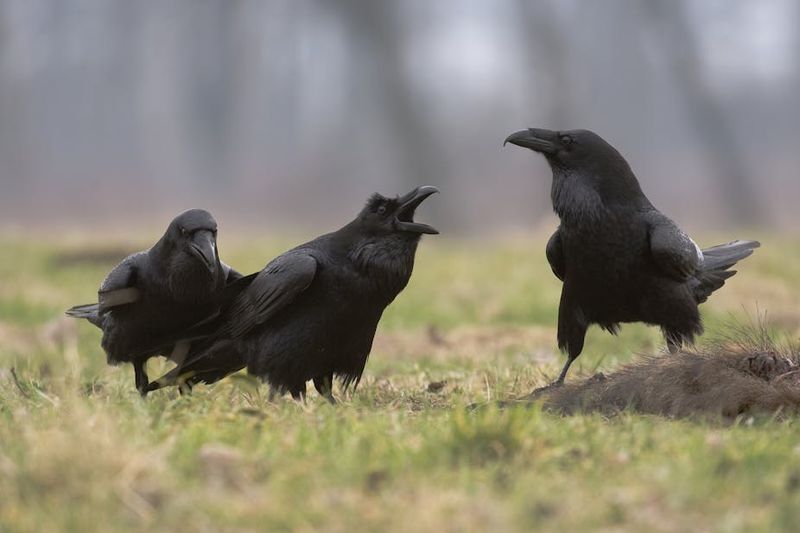
Crows live in complex social structures, forming tight-knit family groups. These groups collaborate in food gathering and predator defense.
They can hold grudges, remembering faces of those who wronged them. Such social intricacy reveals a world of interactions akin to human societies. Crows communicate through a variety of vocalizations, each with distinct meanings.
This social sophistication ensures their survival in diverse environments. However, their tendency to form large roosts can also lead to conflicts with humans, particularly in urban settings.
Crows’ Adaptive Survival Skills
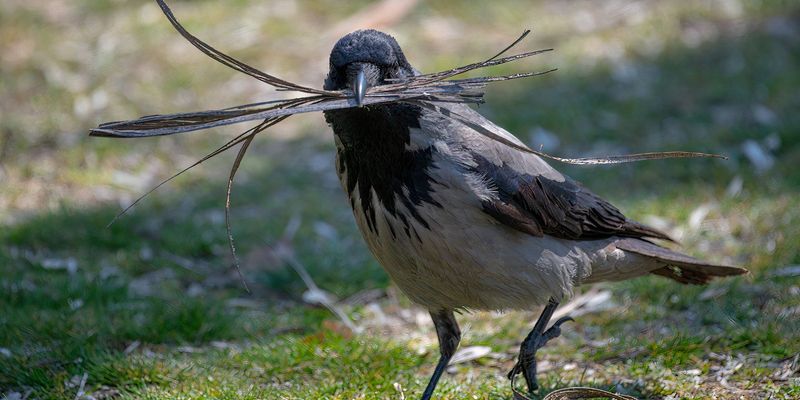
Adaptation is the crow’s forte. They thrive in environments ranging from rural to urban. With keen perception, they exploit resources, feeding on everything from insects to human leftovers.
Their adaptability is mirrored in their migratory patterns, adjusting to seasonal changes with ease. This survival acumen has earned them a reputation as one of nature’s most resilient birds.
Despite urban challenges, crows continue to flourish, showcasing their ability to adapt in the face of adversity, often outsmarting potential threats.
Crows and Communication
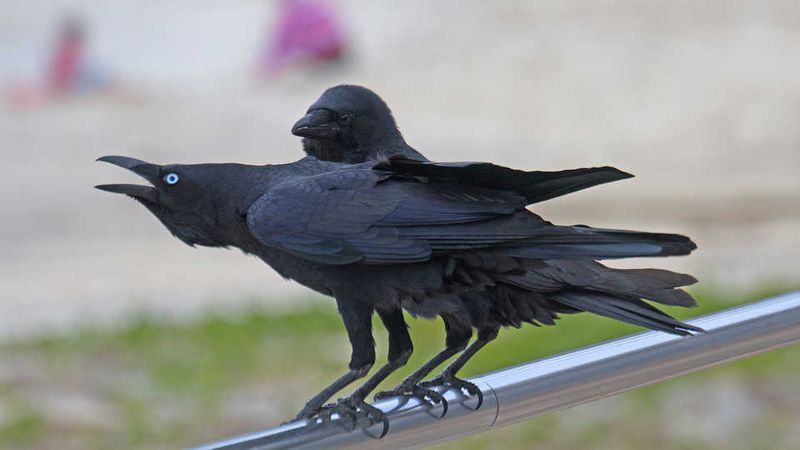
Crows possess a remarkable ability to communicate. Their vocal range is extensive, enabling nuanced interaction. Each call can convey specific information, from signaling danger to sharing food locations.
Research shows they can even mimic human voices. This vocal dexterity is matched by their understanding of gestures and body language. Such communication skills are vital for maintaining their social bonds and coordinating group activities.
By understanding their intricate communication, we gain insight into their social dynamics and survival strategies.
Crows’ Uncanny Memory
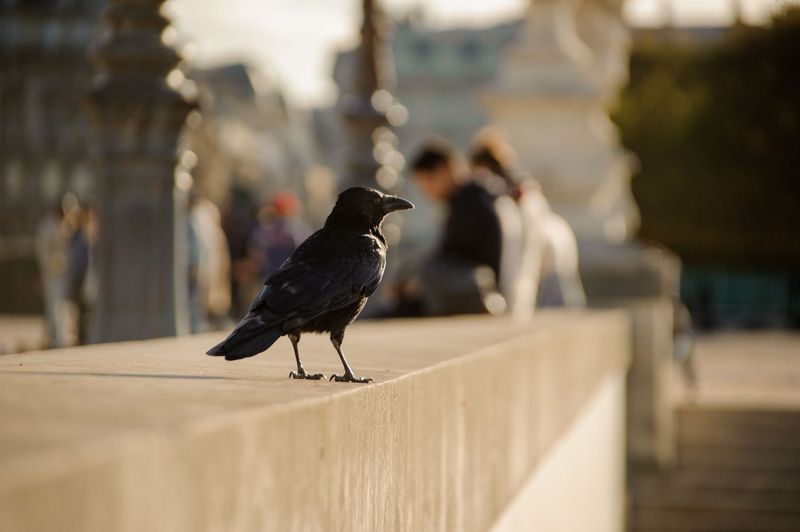
Crows have an extraordinary memory, especially for human faces. Studies reveal they can recognize and remember individuals who treated them well or poorly.
This memory aids in avoiding danger, as they can distinguish between friend and foe. They pass this knowledge to their offspring, ensuring generational survival lessons. This uncanny memory is not just a survival tool but a testament to their cognitive prowess.
Such capabilities make them fascinating subjects of study, revealing the depth of avian intelligence beyond mere instinct.
Crows and Their Mischievous Nature
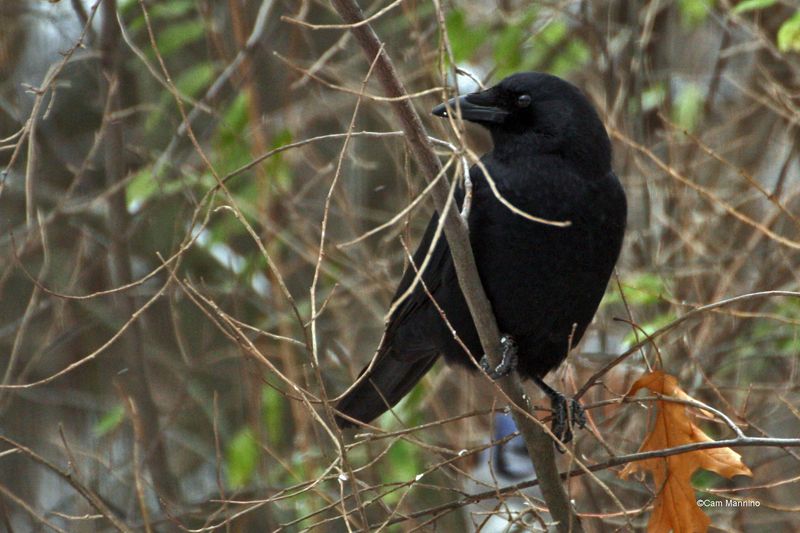
Crows are notorious for their playful, sometimes mischievous behavior. They are attracted to shiny objects, often stealing trinkets from unsuspecting humans.
This playful nature is both charming and frustrating, demonstrating their curiosity and intelligence. In urban settings, their antics can lead to surprising interactions, from untying shoelaces to opening zippers.
While some see this as troublesome, it highlights their ability to engage with the world in ways few animals do. Their mischief is a reflection of their smart and inquisitive disposition.
Crows’ Dietary Needs
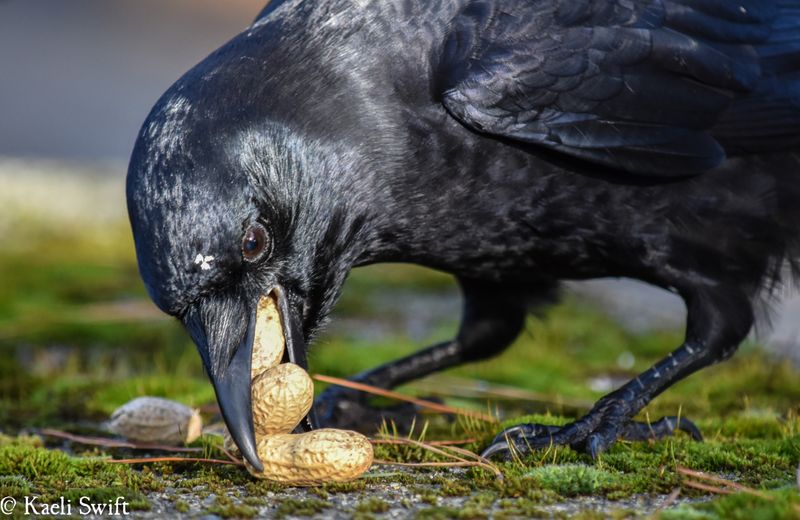
Crows have diverse dietary needs, consuming everything from insects to fruit. Their omnivorous diet requires considerable effort to meet nutritional requirements.
In captivity, replicating this natural diet can be challenging, often leading to health issues. Their need for diverse food sources reflects their adaptability in the wild.
However, this requirement makes them unsuitable as pets, as few can provide the necessary dietary variety. Their diet is a cornerstone of their survival, allowing them to thrive in varied environments.
Crows’ Space and Social Requirements
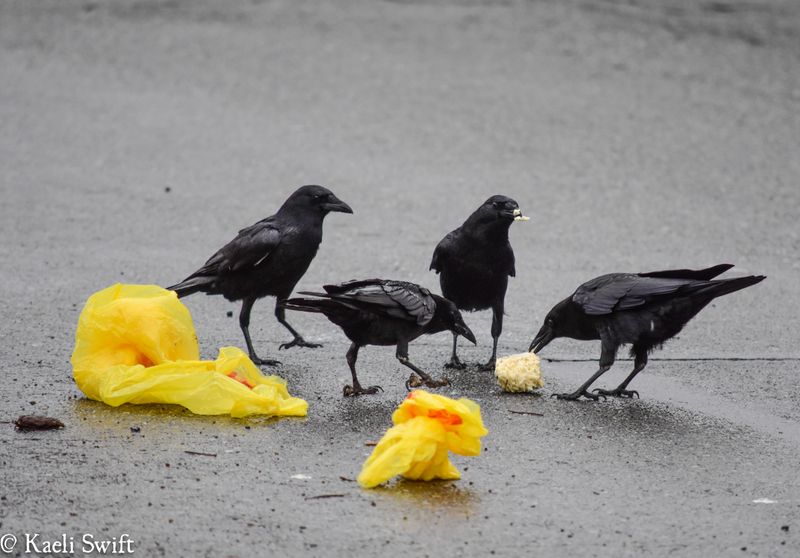
Crows require large spaces to roam and social interaction to thrive. They are highly social creatures, needing companionship to maintain mental health.
In captivity, these needs are hard to fulfill, leading to stress and behavioral issues. Their requirement for space and social engagement makes them ill-suited for traditional pet life.
Crows thrive in environments where they can engage in natural behaviors, such as flying and socializing with other birds. Keeping them confined contradicts their inherent needs, causing distress.
Crows’ Potential for Aggression
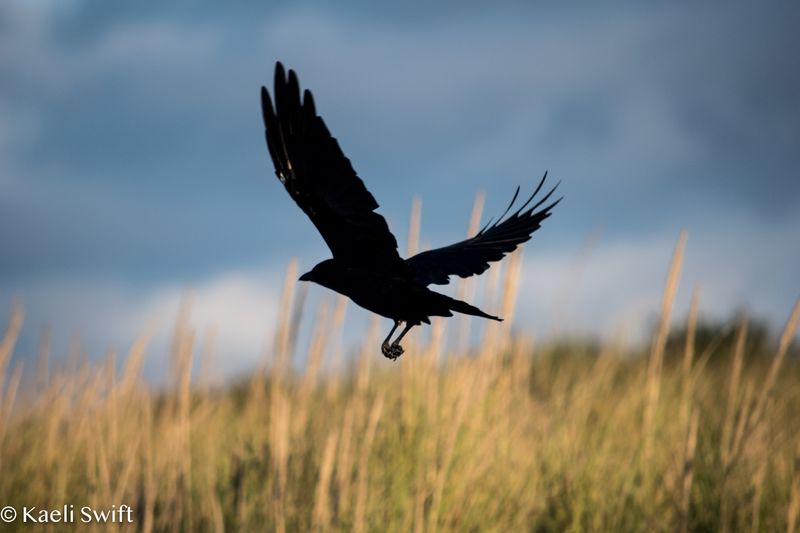
Crows can exhibit aggressive behavior, particularly during breeding season. They are fiercely protective of their nests, often engaging in mobbing tactics to deter threats.
This aggression can extend to humans, especially if they perceive danger to their young. Such behavior underscores their strong survival instincts. While this makes them formidable defenders in the wild, it also poses challenges in domestic settings.
Their potential for aggression is a natural aspect of their character, ensuring their progeny’s safety but complicating their suitability as pets.
Legal and Ethical Considerations of Owning Crows

Owning a crow as a pet is illegal in many places due to their protected status. These laws exist to preserve wild populations and maintain ecological balance.
Additionally, ethical considerations arise from keeping such intelligent creatures in confinement. Crows belong in their natural habitat, where they can exhibit their full range of behaviors.
These legal and ethical issues highlight the importance of respecting wildlife. Keeping crows as pets not only contravenes legal statutes but also raises moral questions about animal welfare.

